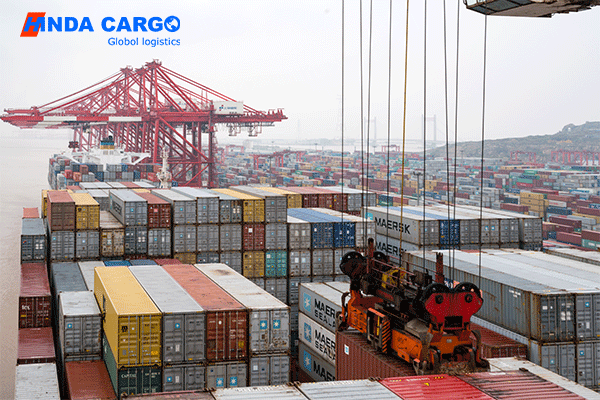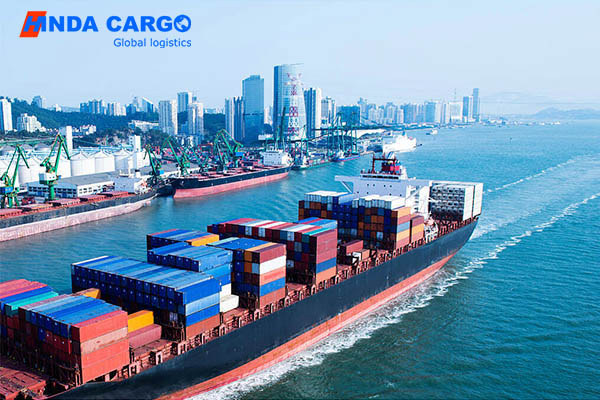How many freight forwarders are there in the United States?
In today's rapidly developing global economy, the United States, as one of the world's largest economies, has an important position in the global logistics industry. Freight forwarding companies, as a vital link in the logistics chain, provide efficient cargo transportation services to businesses and individuals in the United States and around the world.
This article will explore these issues in detail to reveal the current situation and development trends of the freight forwarding industry in the United States.

How many freight forwarders are there in the United States?
According to data from the American Transportation Research Institute, by the end of 2023, there will be more than 17,000 freight forwarding companies in the United States. These companies are distributed in various states across the United States, with California, Texas, Florida and New York as the main concentrations. These states are not only the most populous states in the United States, but also important hubs for international trade and logistics.

Types and sizes of freight forwarding companies in the United States
There are many types of freight forwarding companies in the United States, with different sizes. They can be mainly divided into three categories: large comprehensive logistics companies, small and medium-sized professional freight forwarding companies, and local freight forwarding companies.
1. Large integrated logistics companies
These companies usually have a global network and strong resource integration capabilities, providing a full range of logistics services, including sea, air, land, multimodal transport, warehousing, distribution and supply chain management. Representative companies include DHL, FedEx, UPS and C.H. Robinson, etc. These companies occupy an important position in the global logistics market.
2. Small and medium-sized professional freight forwarding companies
These companies usually focus on specific modes of transportation or market areas, providing professional and customized logistics services. They have strong competitiveness in certain market segments, such as cold chain logistics, dangerous goods transportation, and large cargo transportation.
3. Local freight forwarding companies
These companies mainly serve the local market and provide regional cargo transportation and distribution services. They usually have a strong local network and flexible service capabilities, and can respond quickly to customer needs.

Functions and service content of US freight forwarding companies
As a logistics service provider, freight forwarding companies mainly undertake: transportation arrangements, customs declaration services, insurance processing, warehousing and distribution, and logistics consulting.
1. Transportation Arrangement
Freight forwarding companies select and arrange the most suitable transportation methods and routes according to customer needs, including sea, air, land and multimodal transport, etc., to ensure that the goods arrive at the destination safely and on time.
2. Customs declaration service
Freight forwarding companies assist customers in handling import and export customs declaration procedures, preparing and submitting necessary documents, ensuring that the goods pass through customs smoothly and avoid delays and fines.
3. Insurance processing
Freight forwarding companies help customers purchase freight insurance and provide risk management services to ensure the safety of goods during transportation and prevent economic losses caused by natural disasters, theft, damage, etc.
4. Warehousing and distribution
Freight forwarding companies usually own or co-operate warehousing facilities to provide temporary or long-term warehousing services for customers. At the same time, they are also responsible for arranging the distribution of goods to ensure the efficient transportation of goods from the warehouse to the final destination.
5. Logistics consulting
With rich industry experience and expertise, freight forwarding companies provide customers with comprehensive logistics consulting services, including cost control, logistics solution design, supply chain optimization, etc., to help customers improve logistics efficiency and reduce transportation costs.

Current situation and challenges of the US freight forwarding industry
Although the US freight forwarding industry is large and developing rapidly, it also faces a series of challenges:
1. Fierce competition
As the market continues to expand, more and more companies are entering the freight forwarding industry, resulting in extremely fierce competition in the industry. Companies need to continuously improve service quality and efficiency and reduce costs in order to remain invincible in the fierce market competition.
2. Technological change
With the rapid development of digital and intelligent technologies, freight forwarding companies need to constantly adapt to new technological changes. The application of technologies such as big data, artificial intelligence, and blockchain is profoundly changing the way the logistics industry operates. Freight forwarding companies need to keep up with the technological trend and improve their information level and service capabilities.
3. Regulations and compliance
The trade policies and customs regulations of various countries are constantly changing. Freight forwarding companies need to keep abreast of and comply with the latest laws and regulations to ensure the compliance of the logistics process. In addition, the increased requirements for environmental protection and sustainable development have also put forward higher requirements for freight forwarding companies.
4. Talent shortage
The freight forwarding industry requires a large number of professional talents, including various professionals such as logistics management, customs declaration, and insurance. However, with the rapid development of the industry, the problem of talent shortage has become increasingly prominent. Enterprises need to increase the training and introduction of talents and improve the professional quality and service capabilities of employees.
Conclusion
As an important part of global logistics, the US freight forwarding industry has a huge market size and a wide service network. Despite the challenges of fierce competition and technological changes, freight forwarding companies will continue to play an important role in international trade and logistics with their professionalism, resource integration capabilities and service advantages.




